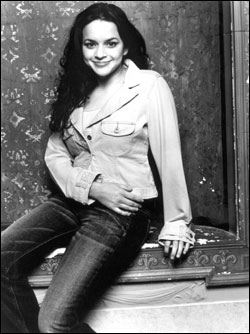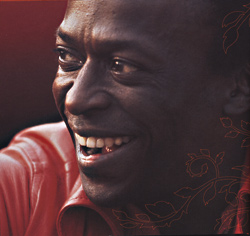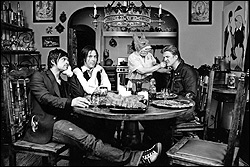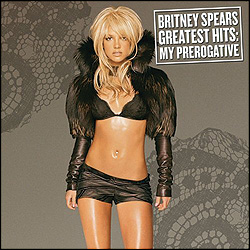Every Christmas, throngs of fair-weather worshippers attend their only church service of the year. Each October, television viewers who barely scan the box scores at breakfast submit to the nasal pedantry of Tim McCarver nightly for a best-of-seven series. And every so often, millions of consumers for whom even OutKast may as well be, oh, Out Hud file into retail chains and anoint some unassuming pop album an unexpected phenomenon. Over the past two years, 8 million of your fellow Americans and 10 million more worldwide have cast their vote for Norah Jones’ sleepy debut, Come Away With Me. You could be next. Hell, you could already be one of them.
Unexpected doesn’t mean inexplicable, and unassuming doesn’t mean unappealing—casual consumers simply have different uses for the baby Jesus and hanging curveballs and soft focus Bonnie Raitt-isms than do true believers. The faithful predictably look down upon these dilettantes, but churches and Major League Baseball and the Recording Industry Association of America can’t afford to condescend. That’s why the ever-provident music industry has been anticipating Jones’ second album, Feels Like Home (Blue Note), with itchy palms. They’ve already exhausted every other reasonable response to what they deem a slump—suing their customers whenever sales dip, firing effective label executives, skimping on the development of new talent. Raising a metal rod on the very spot where lightning struck in 2002 is the only way to capture the electricity that will reanimate the music world. Obviously.
PROBLEM IS, OUR dear Snorah is kind of boring for a lightning rod. And yet, calling Jones dull is like calling Kill Bill violent—a colossally duh-inspiring comment that ignores just how integral that disparaged quality is to either’s appeal. Jones’ dullness isn’t simply the best she has to offer, it’s the core of her aesthetic. Apparently, the woman has made it her life’s work to reveal how many different hues she can subdue on her palette. Soft music can be ticklishly sexy, can be bottomlessly sad, can be emotionally blank. What Feels Like Home offers is a PG snuggle beneath a blanket of sensuality that’s blue like the sky, not like Bessie Smith.
Unlike most blockbusters, Come Away With Me was a vote cast against excitement and glitz, against flashpots and bare tummies and big-bam-boom—against, in other words, what most of us now think of as “entertainment,” as in Tonight or Weekly or E! Once there was soft rock, yes, but that was shattered by Bruce Hornsby’s snare and drowned out by megawatt schmaltz once David Foster discovered the volume control on his synthesizer. In an age when so many fear that the world is too much with us, the unveiling of Janet’s boob at the Super Bowl could be the promotional gimmick imaginable for Feels Like Home. Come away with Norah, yes—not to escape from the ordinary, but to flee the overwhelming din of the extraordinary.
So it’s hardly shocking that a not- particularly flattering pic of Jones should grin out at us from the latest cover of Tracks, a magazine whose celebration of “Music That’s Built to Last” for the aging rock lover reveals so much effort behind its stiff presentation they should call it Levitra Monthly. I can imagine the perfectly decent editorial reasoning behind this gaffe: “We want her to look like a normal woman. We don’t want to seem like we’re exploiting her sexuality for sales.” After all, it’s not easy defining yourself against what’s sexy, what’s fun, what’s interesting—as the DLC can attest. Yet Jones’ appeal is that in an industry dedicated to the self-conscious cultivation of spontaneity, her approach doesn’t feel calculating, an impression backed up by her own resistance to publicity. Never underestimate the charm of hearing someone do what she feels like doing and having it entertain millions.
And never underestimate the limitations of that charm. In a way, the disc’s soporific mood and generalized feelings work in its favor, if only because that sets the interesting bits in sharp relief. Jones sneaks a left-hand stride line just a little behind the beat on “Carnival Town,” and it’s gently startling, like a lover’s hands slipped over your eyes from behind. A concrete image like “Funny how my favorite shirt smells more like you than me” emerges, the first object that comes into view when you wake up from a dream. And when Dolly Parton duets with Jones on “Creepin’ In,” you might wonder if Ted Turner’s people got ahold of the print and now everything’s in Technicolor.
Parton is in many ways the anti-Norah. Her recent bluegrass records are exciting in spite of themselves, because she can’t find a straitjacket that’ll fit her—no matter how pure she tries to sing that mountain music, her personality pokes through her archetype. Jones, on the other hand, seems to seek out stylistic anonymity. Why else would Jesse Harris, who wrote five songs on her debut, including the one you remember (“Don’t Know Why”), be demoted to simply playing in the band? Could it be, as Jones sings on “Be Here to Love Me,” that “The poets are demanding their pay/And they’ve left me with nothing to say”? Actually, if she had nothing to say, then we could at least listen to some pretty piano music. Instead, they’ve left her with lines like “Children are dancin’/ Gamblers are chancin’ their all.”
THEN AGAIN, LOTS of folks—and not just the record industry proper—are chancin’ their all on Jones. Idealistic in its bizzy way, Tracks imagines that if you like Sting, maybe you’ll give the new Mountain Goats disc a spin. But Norah Jones probably isn’t a gateway drug to the Mindy Smiths and Lucinda Williamses—either she satisfies you or she doesn’t. And there is the very real possibility that the many people who own Come Away With Me are already satisfied. Scented candles burn to nothing, bath oils wash down the drain. But even if compact discs may not quite offer perfect sound forever, you don’t need a replacement two years later. The industry, on the other hand, isn’t so easily satisfied. By the time you read this, Norah Jones will probably have the No. 1 record in the U.S. But if she doesn’t break 5 mil in sales by the All-Star break . . . well, you’d be wise to stay off Kazaa for a couple of months.








